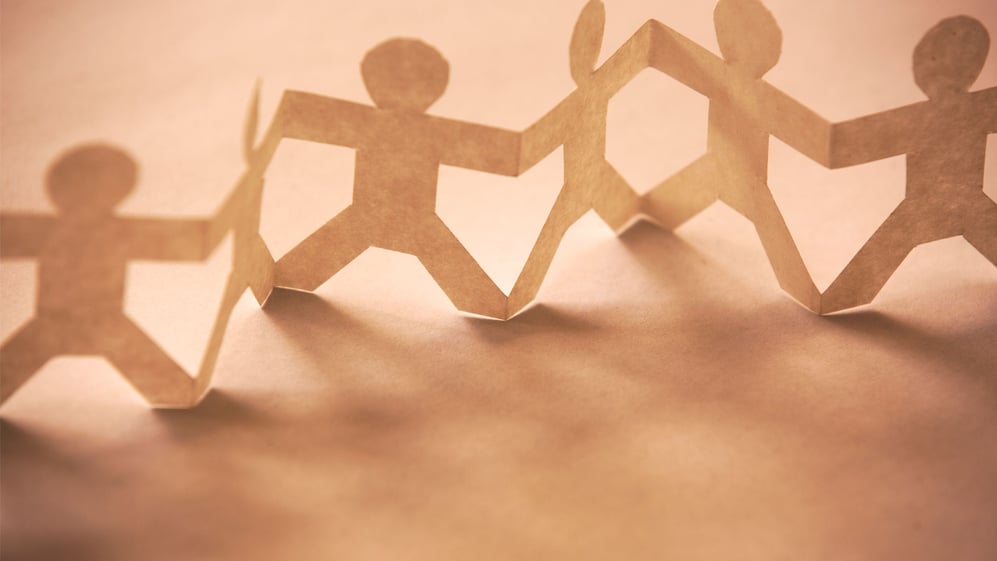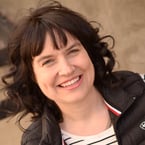In April 2018, I sat down at my computer with an open Bible and thought I’d write a Bible study on creation, working through Genesis chapters one through three. God, on the other hand, laughed at my simple-minded ideas and decided instead to deal with my angst.
He turned me, in my pursuit of understanding creation, brokenness, and justification, again and again to the Book of Colossians.
Me: But I like Genesis, Lord, and long, long ago, Lord, and galaxies far, far away, Lord.
Lord: I have some stuff for you now, Heidi.
Me: But … but … but …
Lord: Yep.
Colossians is about salvation. It’s about Jesus as all in our lives, rather than just part of our lives. It’s about a timeline that God unveils through Jesus and the dualities in which we live on this earth as we wait for heaven and newness in Him. And then there’s this other thing: it’s about the connections God weaves into our lives and this massive, mysterious community He created called the Church—an imperfect community of people, sometimes gathered together, sometimes scattered far and wide, given the task of life together in the Word and by the Spirit.
It’s that part that makes me angsty. I love God. I love His ideas. I even love the Church, but figuring out all the moving pieces left me tired and a little sad. I wanted life together to look better than our current reality, which often becomes apathetic, disconnected, fragmented, and isolated because of the reality of our sin. What are we to make of these messy things that are not all as clear cut as “do not commit adultery,” “do not steal,” and “do not murder?”
I found myself paralyzed trying to figure out all the moving pieces. I wanted the Church to be a better representation of Christ and His connection to us—not perfect, but better. For me, in my reading of the Book of the Colossians, “better” meant moving toward deeper life together. Was this a realistic goal for living in a broken world, full of sinners, of whom I am the worst? Paul’s words to the Colossians were telling me that our great big God is concerned not only with big theological words like justification, sanctification, and eschatology but also concerned with small and personal words like loneliness, race, growth, and connection, particularly as they pertain to His Body, the Church.
I would read Colossians and then walk away from my computer screen asking God,
“But how do we do it, Lord?”
I could understand how community is supposed to look: the Body of Christ, suffering and rejoicing together—different moving parts, all with their gifts, bound by truth and love—but how do we get there? How do we get from broken people, redeemed in Him, but who ignore one another to broken people, redeemed in Him, who love and serve one another and walk together day by day?
I learned two things:
Community is organic.
An organic community is living and breathing, which also means it is part of the created realm. In the end, it’s not really our thing. It’s God’s thing, just as much as salvation is God’s thing and redemption is God’s thing. But we get to partake in it. God knits people and lives together, just as He knits together a tiny body in a mother’s womb. We can’t create community without the Holy Spirit. It’s His gig. So, to some extent, we simply let our lives and our local churches be the vessels that contain His community in the same way we let Him take over our hearts and minds.
All community takes work.
Just as God forgives and justifies us as righteous before Him in Christ—while we were absolutely dead on the floor in our sin—so God raises up the Body of Christ from death to life without our help. However, risen people do not stay on the floor. Show me one biblical example where this is the response to Jesus’ miraculous work. You will be hard-pressed to find it. Rather, the work of sanctification begins: sometimes people stand up; sometimes people jump and dance and run and hug Jesus, saying “Thank You!” So also there is sanctification of community, which means there is a process to building and sustaining community. It is not an exact process, yet there are concepts that God teaches us in His Word that open our ears and give us an understanding about His community, and we move from simply sharing space as we hear His Word to suffering and rejoicing together.
I got a little pushback for creating a free resource associated with The Mighty and the Mysterious with the subtitle “7 Ways to Make Authentic Community Happen.” Can we make relationships happen? Can we build this place of community that is really God’s to build? Would we presume to act as the Holy Spirit? Of course not. Anything that is good is of God, not us. But Colossians reminds us over and over again that God uses people.
- “To them God chose to make known …” (1:27)
- “Therefore, as you received Christ Jesus the Lord, so walk in him …” (2:6)
- “Put on then, as God’s chosen ones, holy and beloved …” (3:12)
- “Whatever you do, work heartily, as for the Lord …” (3:23)
- “At the same time, pray also for us …” (4:3)
God is not like our culture, nor has He ever been like any culture that has gone before us, including what the Colossians were contending with. God doesn't need us in order for community to happen—that's part of the mystery—but He wants to use us to create real, authentic community in this world. We can't make it happen. We can contribute though. He gives us the work of creating opportunities for day-to-day relationships to develop, for widows to be visited, for orphans to be cared for, for mental health stigmas to be challenged, for sin to be confronted, for heartaches to be comforted, for griefs to be born on two backs or ten backs rather than one, for joy and laughter and dancing to be shared.
We leave it to Him, but we can also pick up and join the journey. We can allow room for God to do His mighty and mysterious thing, and we can do that mighty and mysterious thing with Him. It will be strange; sometimes we won’t understand it. We will be angsty and awkward, and He’ll simply turn our faces back to the computer screen, back to this life together with one another and tell us to get to work—mighty and mysterious work.
Order your copy of The Mighty and the Mysterious today.












